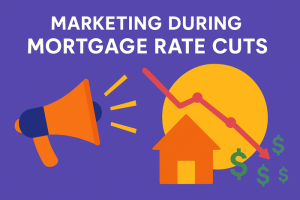Summary
This article is a roadmap for anyone aspiring to become a loan officer. Learn about the licensing process, necessary skills, and how to kickstart your career in the mortgage industry. Discover tips for building expertise and finding opportunities in a competitive market. By the end, you’ll know how to take the first steps toward a successful career as a loan officer.
Becoming a mortgage loan originator can be highly attractive. You’ll often see them dressed well, driving the newest cars, flush with cash, and with a lot more time freedom than in most businesses. So, what does it take to join the ranks?
How do you become a mortgage loan officer?
The Appeal & Truth of Becoming a Loan Officer

Being a mortgage professional can be a highly envied gig. You can be very well paid. You can often set your own schedule. It can also be a great way to help others. You’ll be in a position to help family, friends and neighbors find the path to homeownership, and financially navigate life.
However, it is also a high-stress job. In reality, most aren’t making millions. There is a huge difference between your average LO income and the top producers who are closing 100 plus loans per year.
How Much Do Loan Officers Make?
 As Realtors, the hype is that you can quickly be making tens of thousands of dollars each month. Many do.
As Realtors, the hype is that you can quickly be making tens of thousands of dollars each month. Many do.
Yet, according to the data, most are far short of those goals. Salary.com says that in 2018 the average loan officer salary was only around $41,000 a year. Glassdoor puts that closer to $34,000 a year. Or $39,000 for a ‘Senior’ loan officer.
That’s pretty terrible. You could honestly make more at minimum wage working at Mcdonald’s!
However, there are high-performing mortgage loan officers who are making $25,000 to over $250,000 per month. Be one of those.
What Does a Loan Officer Do?

The daily work typically includes:
- Sales calls (lots of them)
- Learning new loan products
- Reviewing loan applications
- Help process loans and retrieve conditions from borrowers
- Coordinating with Realtors, title reps, insurance agents, etc.
- Ongoing learning
- Creating and testing new marketing
Mortgage Loan Officer Licensing Requirements

You’ll have to get a license as a Mortgage Loan Originator (MLO).
Don’t worry, this is one of the easiest professional licenses to get. The hardest part is the classroom time and all the expenses involved.
The Nationwide Mortgage Licensing System (NMLS) has done a lot to standardize these requirements across America. Still, each state has its own rules and requirements as well.
On average you can expect to have to complete around 20 hours of pre-license training (PE). Nevada and Utah are more intensive, with 30 and 35 hours of education respectively. You can do this in a real classroom or online. Note that the pre-exam test prep classes can be a huge help and are worth the extra money.
Know that you’ll have to do ongoing continuing education (CE) before you renew your license each time too. This averages about 8 hours. More if you are in NY, NJ, OR or UT.
Get the full state-by-state breakdown here.
You’ll then have to take the NMLS exam. It’s a couple of hours of multiple-choice questions. You can retake it if you fail the first time.
Before you can get your license you’ll also have to pass fingerprinting, FBI background checks, and a credit check. You have to be at least 18 years old and have a high school diploma (or equivalent). Typically if you have a felony, any criminal charges to do with money and fraud, or your credit shows you don’t know how to manage your own money, you could be denied.
Gold Coast Real Estate Schools charges around $300 to $400 for the upfront training. The MLO Training Academy says you can expect to pay around $300 for the NMLS exam itself. Larson says you can expect to pay an additional $350 or so in credit reports, background checks, and application fees.
Becoming a Loan Officer

After all that, actually becoming a loan officer is relatively easy. If you are going for a day job in a bank-type setting, they may have other requirements and may pay you a small salary.
Mortgage lenders and brokers will mostly hire you on the spot, assuming you don’t look like you are going to be a huge pain. They don’t care, because you are typically working on 100% commission. If you don’t hustle they don’t pay you anything. Yet, this is where the real money is. If you can sell, you can make an unlimited amount of cash.
The most important thing to know is that this is your own small business. This is not like any job you’ve ever had before. You’ve got to go get your own business and clients. Invest your own money in marketing and learn everything on your own. This is essentially a license to print your own paycheck. How big that depends 100% directly on your hustle and efforts to learn.
Your big next step is going to be to set up that business, including:
- Your own mortgage website
- Business cards
- Social media pages
- A mortgage blog and email follow up system
- The technology you need to take digital mortgage applications and communicate
- A good phone and laptop
Aside from these items, the two things which will really separate you from the pack and ensure your success are.
- Learning how to go find out what you do know for yourself
- Building on your sales skills constantly
This can be an incredible career, with lots of money and freedom. It’s up to you what you make of it.
Key Takeaways
- Understand Licensing Requirements
Meeting state-specific requirements is the first step to entering the field.
- Develop Industry Knowledge
Building expertise sets you apart from competitors.
- Focus on Networking Early
Strong relationships open doors to career opportunities.
Commonly Asked Questions
- What qualifications are needed to become a loan officer?
A high school diploma and licensing through the NMLS.
- Why is networking crucial for aspiring loan officers?
It helps build industry connections and secure referrals.
- What skills are essential for loan officers?
Strong communication, sales abilities, and attention to detail.
- How can loan officers stay updated on industry trends?
By attending seminars, training, and joining professional associations.





